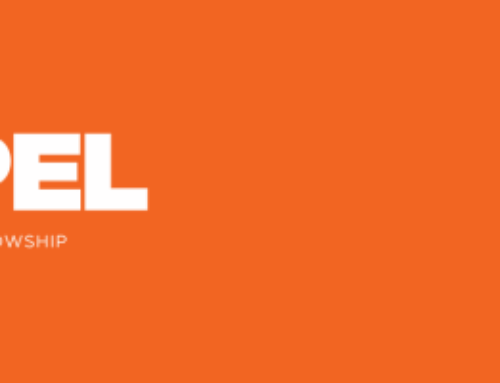TEACH Las Vegas surrendered its charter at the June 21, 2024, State Public Charter School Authority board meeting. School closures, such as TEACH Las Vegas’ and the cascading impacts that occurred as a result, are disruptive, but they are necessary if we, as stakeholders in our state’s education system, are going to truly put kids first. Further, these decisions should be based on standards and expectations of every public school, not politics or ideology.
The closure, and the months leading up to it, are a reminder of what happens when schools are held accountable to the standards set for their operations and demonstrate a powerful lesson in why accountability isn’t a bad word – rather, it is a concept we should wholeheartedly lean into as we collectively look to improve education and ensure it responds to the needs of kids.
Charter Schools Refresher:
Charter schools are public schools that are free and open to all. Students and families choose to attend a charter school and are selected to attend through an anonymous and blind lottery. The State of Nevada outlines the lottery approach and other details in state law.
Charter schools are governed by an individual volunteer school board of trustees. Those individuals are responsible for holding the school leadership accountable for the academic, financial, and operational performance of the school. The authorizing entity for the charter school – for TEACH it is the State Public Charter School Authority – grants the school a charter, or six-year contract, outlining key performance metrics in operations, academics, and finance that the school must meet. If it does not meet those standards, it can be issued notices of concern and must take action to improve performance. If those areas are not addressed, then the authorizer can move to close the school.
What Happened?
TEACH Las Vegas’ executive director left in October 2023, and the school’s Charter Management Organization, or CMO (TEACH Public Schools, which operates in Los Angeles) stepped in to lead in the interim. Community partners rallied to support the school and students’ best interests, but significant performance and staffing issues persisted.
These challenges have been well documented in the media and communicated among the SPCSA board and staff over the last several months. With several major changes over this past school year to school leadership and staff, as well as the dwindling of the school’s board to just two members, these governance challenges led to significant operational issues. As we know, good governance is a pivotal component of any successful organization.
From those governance issues arose issues with staffing (including two unplanned school closure days in October 2023) and enrollment (with students leaving the school following the staffing issues). Further, as noted by the SPCSA in their public recommendation memo to close the school, the relationship between the Charter Management Organization (TEACH Public Schools), the board chair, and the school leader “deteriorated significantly.” The academic, operational, and financial performance of the school suffered, exacerbated by the challenges posed by declining enrollment and staffing issues. At the school’s June board meeting, the board chair resigned and the CMO announced that it would be severing ties with the organization. Without the CMO, the school would have had to reapply for its charter contract with the SPCSA; with the existing issues, such an application would likely not be approved.
The gravity of the situation had to be faced head on, and quickly, to give students time to plan for their 2024-25 school year and to ensure families had as much time as possible to find other schools that fit their students’ needs. Board members voted to surrender the school’s charter, closing the school at the end of the 2023-24 school year. The SPCSA approved the closure and the two organizations are working to ensure that the school’s closure plan occurs with fidelity, with students and staff as the primary concern.
Where is the accountability?
Charter schools operate with a defined contract that outlines both the term (length of time) and expected outcomes (performance), and when those terms are not met, there are consequences that are outlined in both statute and SPCSA policy. In this case, the system of accountability worked as intended. The performance targets were not met, the safeguards were activated from the Notices of Concern to ongoing and regular communication with SPCSA board and staff. In the end, the issues were not able to be addressed and the Board made the decision to close the school in time for students to have the summer to find a school that fits their needs. Had this been a school under one of Nevada’s 17 school districts, the school could have continued to operate as-is, with little to no recourse for academic, financial, and operational performance.
Simply put, recourse for underperforming schools should be a key discussion point for stakeholders, no matter who governs the campus. TEACH’s closure is a valuable lesson as we grapple with the most effective and impactful ways to grow educational opportunities and do so in a way that ensures we learn from the past. It is also important to note that much like market forces that drive competition in nascent sectors, underperforming schools closing and/or receiving significant intervention is a necessary step in growing and strengthening all public schools (both district and charter) to meet the diverse needs of Nevada students. Families deserve high-quality schools, supported by consistent and meaningful communications with schools, so they can make informed decisions about their student’s education.
Where do we go from here?
We must continue to measure the impact our schools have on kids. And, while measuring impact is critical we must also have a system of rewards and consequences to take action as needed. Taking action is the accountability that is a necessary component in moving our education system ahead. We should welcome accountability, embrace its discomfort, and lean into the tough choices and reflections that accompany it. But we, as a community, can learn from the closure and ensure that lessons learned become part of a stronger, more resilient, and more student-focused education system for the future, and not just another way to create political cheap shots.
Charter schools are free, public schools open to all, and without them, thousands of Nevada kids would have less of a voice, fewer options, and fewer opportunities for success. They are the key to an individualized approach to education in the public system– they do not offer a one size fits all approach. SPCSA-sponsored charter schools also comprise the third largest school district in Nevada, and continue to grow every year. We should be embracing ways to make them better, more resilient, more supported, and equitably funded. Charter schools are a vital and expanding part of our education system. We should recognize and nurture the opportunities they present for learning, growth, and accountability.
Opportunity 180, in our capacity as a champion for student success, supports all public schools towards their student achievement goals; we do not believe in choosing one public school model over another. Education is not one-size-fits-all, and in service of our North Star of every kid graduating from high school college and career-ready, prepared to live the life they dream, we envision both district and charter schools working in a complementary approach to ensure every student is set up for success.
Learn More…

